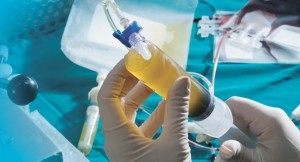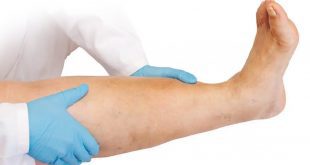 Prospira PainCare offers the cutting-edge Regenerative Injection Therapy with Platelet-Rich Plasma (PRP) at our National Pain Institute, Winter Park location in Florida.
Prospira PainCare offers the cutting-edge Regenerative Injection Therapy with Platelet-Rich Plasma (PRP) at our National Pain Institute, Winter Park location in Florida.
What is Regenerative Injection Therapy?
Regenerative Injection Therapy with Platelet-Rich Plasma (PRP) is an alternative approach to healing tendon and ligament injuries. Known for its restorative healing, Regenerative Injection Therapy has been gaining popularity as an alternative to surgery for those with injuries such as arthritic tennis elbow, carpal tunnel syndrome, ACL tears, shin splints, rotator cuff tears, plantar fasciitis, Iliotibial Band Syndrome or other sports injuries. Regenerative Injection Therapy with Platelet-Rich Plasma is an autologous healing therapy, where cells are taken from the patient’s own body, that restores and regenerates the tendons using the body’s natural ability to heal. The use of the patient’s own PRP significantly reduces any adverse effects.
What is Platelet Rich Plasma (PRP)?
Platelet-Rich Plasma (PRP) contains concentrated platelets with huge reservoirs of bioactive proteins, including growth factors vital for initiating the acceleration of tissue repair and regeneration. Bioactive proteins initiate the healing of connective tissue, bone, tendon and ligament regeneration and repair, promote the development of new blood vessels and stimulate the wound healing process.
Why Do People Choose Regenerative Injection Therapy?
Patients choose this treatment for its restorative and regenerative properties. It is typically considered after other treatments, such as spinal injections (epidurals, facets and hyaluronic acid injections) and physical and chiropractic therapy, have not worked, or are no longer working. The treatment is popular among athletes with sports injuries who want to avoid the exposure and long term effects of using corticosteroids as a “band-aid” for an injury. Regenerative Injection Therapy has been used in Europe for more than ten years and is just recently being practiced in the United States. We have been treating patients with Regenerative Injection Therapy at Prospira PainCare’s National Pain Institute in Florida since 2010.
National Pain Institute’s Dr. Jack Miletic says, “Early intervention is key. Using the body’s natural ability to heal can make all the difference. Some patients have no other alternatives due to the severity of damage to their body. But for some patients, the sooner we can intervene and give them a natural, regenerative and restorative treatment, with minimal risk of adverse effects and no long term exposure, then they’ll be using less pain medicines and their quality of life can return to something they can be satisfied with and maybe even more.”
How Long Does it Take?
Healing takes time. PRP helps to regenerate tendons and ligaments but it does take time to heal. Most patients require one to three sets of injections that are spaced out by four to six weeks. Some injuries require a patient to receive up to six injection sets. Your doctor at National Pain Institute will determine how many sets of injections you need and when you can resume regular activities. All injections are administered by a licensed physician. The PRP is obtained and prepared by a licensed nurse.
About Dr. Jack Miletic
National Pain Institute’s Dr. Jack Miletic is board certified in physical medicine and rehabilitation and pain medicine and has done extensive research in alternative regenerative and restorative therapies, always trying to find new and different ways to treat the degenerative spine. Dr. Miletic completed a fellowship at Cedars-Sinai Medical Center, Institute for Spinal Disorders and it was there that his interest grew in treating painful disorders of the spine. He has extensively researched the restorative properties of PRP and co-authored National Pain Institute’s PRP study protocol for its clinical study.
Patient Testimonial
“I have worked in the billboard industry for over 30 years. I started building from the ground up at the age of 22. Fifteen years later after putting my body through much abuse, I became the ops manager but I also still worked in the field with my guys. In 1998 I was in a bad truck accident and was T-boned in the driver’s door by a car doing 70 miles per hour on I-95. After a few years of pain medications and physical therapy the pain became unbearable. I could not stand or sit comfortably and couldn’t sleep without waking up with pain. I could not walk 30 yards from my house to my barn without sitting down in the middle of the pasture and almost crying it hurt so badly. At work I would get out of my chair and go lay flat on a stack of plywood in the warehouse for 30 minutes at a time. After three PRP treatments with Dr. Miletic I am back to climbing signs again and climbing trees to trim them. Working as hard but not as fast as I did when I was 30. I can ride my Harley again. I started breaking horses again, but have since stopped since I didn’t want to push my luck.”
-Billy Nichols, P
RP Patient at The National Pain Institute
Winter Springs, Florida
Dr. Jason DeLuca joined the National Pain Institute in 2010. He attended Siena College in Albany, NY and received his BS in Biology. Dr. DeLuca graduated from SUNY Upstate Medical University in Syracuse, New York with a Doctorate of Medicine and completed his residency in Physical Medicine and Rehabilitation from the University of North Carolina in Chapel Hill, North Carolina.
Primary Specialty
Pain Medicine
Secondary Specialty
Physical Medicine and Rehabilitation
Board Certification
Fellow – American Academy of Physical Medicine and Rehabilitation
Undergraduate Education
Bachelor of Science – Biology; 2001 Siena College, Albany, NY
Medical Education
Doctor of Medicine – 2005 SUNY Upstate Medical University, Syracuse, New York
Residency
2009 – Physical Medicine and Rehabilitation, University of North Carolina Hospitals, Chapel Hill, NC
Physical Medicine and Rehabilitation (Level 1 trauma, tertiary care, and burn center)
Fellowship
Pain Fellowship – 2010
Primary Treating Location
13945 SE Highway 441
Lady Lake, FL 32159
Check Also
Obstructive Sleep Apnea & Oral Appliances: A Solution for a Good Night’s Sleep
By Richard W. Rozensky, DDS, D.ABDSM Sleep apnea affects more than 25 million people in …
 Central Florida Health and Wellness Magazine Health and Wellness Articles of the Villages
Central Florida Health and Wellness Magazine Health and Wellness Articles of the Villages



